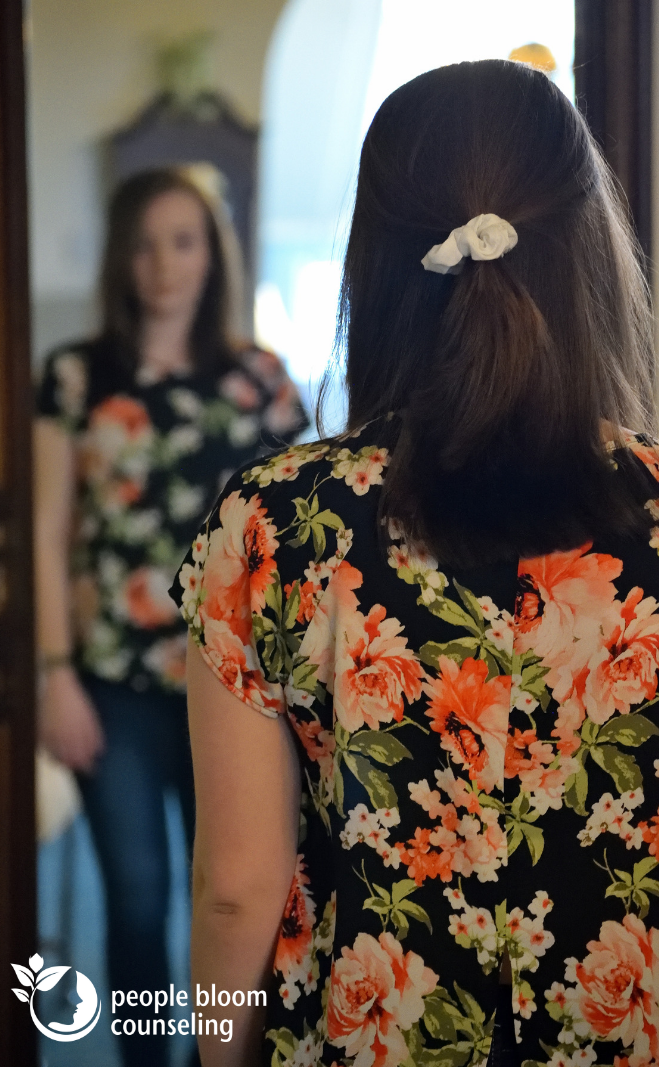Photo by Matthew T Rader on Unsplash
A public service announcement for all the women
Ladies, we are heading towards the latter part of summer… and of course season change typically includes a transition in wardrobe, at least in the Northwest. And as a curvy woman, I for one am ready to be done with the pressure to find the most “figure-flattering” swimsuit coverup, and spanx to avoid the uncomfortable chafing that inevitably results from 80-plus degree weather and thick thighs in a dress.
Trending toward body positivity
In general, I believe society is making progress around body inclusivity and size diversity. Big applause for public figures like models Iskra Lawrence and Ashley Graham who are using their beautiful bodies, and more importantly, voices, to speak out against body shaming and diet culture. The publicity around Nike’s effort to support the movement with their full-figured mannequin was epic - and hopefully just the beginning of more clothing companies actively promoting size diversity.
I’m seeing more unfiltered Instagram accounts and people, not just women, owning their realness. It’s about damn time, but we’ve still got a ways to go. By “we” I mean “we” as a collective and as individuals. We cannot expect change to happen unless we are willing to do our part individually. And I, a mental health professional who works with people struggling with body image and disordered eating, struggled to do my part this summer.
This is my confession.
How I ended up on a party boat
It was a beautiful Seattle Saturday a couple of weeks back. As a plus-one, I attended a promotional/marketing event for Seafair because my partner works in the hospitality industry. The event was hosted on a partnering company’s boat, which meant swimsuits, skin, and a lot of women who fit the bill for “traditional beauty standards.” I overheard women talking about their month-long cleanses in preparation for the event, two-a-day workout weeks, and compliments on each others’ physiques. Many of these women have become dear friends, and to be clear, I have zero judgement towards anyone who values these things. I’ve noticed this is also how lots of women bond and connect with one another.
When self consciousness takes over
As we humans tend to do, I got caught up in my head on that boat because I saw no other bodies that looked like mine in swimsuits. I thought to myself, Where are all the Ashley’s and Iskra’s? The diverse women I’ve been flooding my social medias with to drown out the other filtered, photo-CHOPPED ads that otherwise pop up everywhere? I wondered if I’d just created a safety bubble for myself and if actually, the rest of the world really hadn’t expanded beauty ideals. The hard work I’d convinced myself I’d done around accepting my curvy body flew out the porthole.
A couple of people asked why I was keeping my pants on (they were whooey pants-- the really loose, wide-leg kind that go “whoo whoo” in the wind) and not getting in the water with my friends. I replied self-degradingly, “I might have accepted my cellulite but I’m not sure that the rest of the world is ready for that yet,” and laughed. OMG you guys, the SHAME.
The thing is, I wouldn’t have given a shit if I’d seen anyone with cellulite. In fact, there were probably plenty of women with this NORMAL thingy happening on their skin, and I didn’t even notice because my brain was scanning for data that confirmed my self-conscious thoughts.
If I could do it all over again
I have some regrets about that day. If I could have a do over, I’ll be brave enough to be the Ashley on that boat...because maybe it would have helped other self-conscious women on that boat rock their water-wear as well. After all, it was really hot, and I was really sweaty and uncomfortable, but my body-conscious anxieties kept me from doing things I actually cared about. My partner spent most of the afternoon floating off the back of the boat, staying cool in the water. Instead of watching my first Blue Angels airshow holding the hand of the person I love most, cooling off in a floaty next to him in the water, I sat on the opposite end of the boat, fully clothed and overheated, and missed out on a memory with him.
Tapping into my values
While I’m trying to be self-compassionate around not feeling ready to be an Ashley just yet, I allowed my fear of negative judgment to dictate how I chose to live my life that beautiful Seattle Saturday. I was distracted from my personal values of making memories with my best friend, a core concept of Acceptance-Commitment Therapy (ACT). If I had slowed down and checked in with myself, I would remember the Health at Every Size Model (HAES), which emphasizes that every body is a swimsuit body. It de-stigmatizes fatness and people with bigger bodies; it reminds us that fat isn’t bad, nor is it a sound indicator of someone’s health… and certainly not someone’s worth. These are some of the tools I use to help my clients with body image and disordered eating.
Taking a cue from the boys
What I also didn’t notice that day was any men discussing these subjects. The guys on the boat were rocking their swimmies with all sorts of body types; none were turning down the sandwiches provided to avoid looking bloated, because heaven forbid they were hungry. I didn’t hear any guys commenting on their bodies or shaming themselves.
Gals - what if we’re mindful about speaking about ourselves unkindly? What would we hear? What if we avoided the calorie conversations at the table or the justifications for wanting the regular sized order instead of the half? We can learn to recognize that these critical thoughts are only thoughts, not absolute truths.
It is okay and very nurturing to give your body what it needs and wants, which might be salad one day and ice cream the next. When we relinquish the rules and judgement around food and physique, food becomes less of a shame/reward system and begins doing what it’s supposed to: nourishing our bodies so we have the energy to be present for whatever it is we care about for the rest of the beautiful Seattle days to come.
I am here
I may be a therapist, but I’m not perfect and I’m always learning from my mistakes. If you need someone to help you leave body shaming on the deck while you go for a swim, let’s talk. The party is in the water.
Abby Erickson is a Licensed Mental Health Counselor at People Bloom Counseling, a Redmond psychotherapy practice. She helps people with anxiety and social anxiety learn ways to better manage their angst. She also helps people struggling with low self-esteem and body image issues be comfortable in their own skin. Abby is excited that there are still a few good days of summer left to get a second chance to try out that swimsuit and enjoy the sun.























